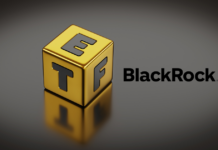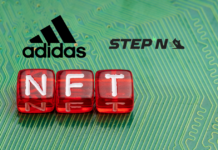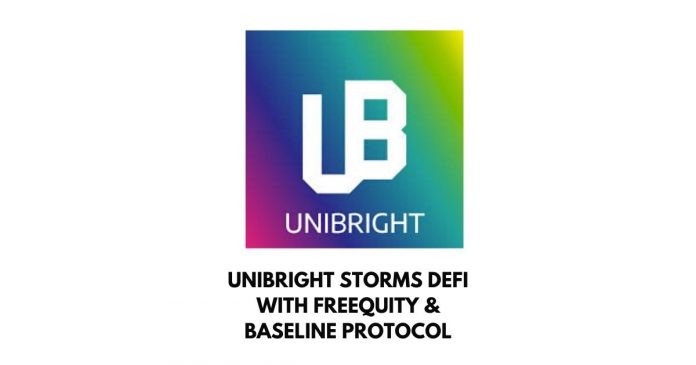Unibright has stormed the Decentralized Finance (DeFi) space with Freequity and Baseline Protocol.
With Freequity and Baseline Protocol, Unibright is set to do more in the DeFi Space. Known for developing enterprise solutions, Unibright helps build tools for process modeling and start-ups investment.
About DeFi
In use, decentralized finance (DeFi) represents an overlapping network of smart contracts and Dapps. Mostly built on Ethereum, these smart contracts have a significant focus on financial applications.
Such applications include trading, tokenization, exchanges, derivatives, lending, etc. Going deeper, DeFi has modular protocols capable of stacking on top of each other, in order to develop a more compact system of interoperating parts.
How does Unibright Freequity fit into DeFi?
Freequity is a Unibright-backed platform that focuses on all the important phases involved in the tokenization process, including token issuing, liquidity pool setup, trading, simulation, etc. Going further, Freequity integrates these tokens into markets and system landscapes. In a nutshell, Freequity is “Unibright’s approach towards a regulatory compliant 360° security token platform”.
Many components of Freequity are known for adding value to the DeFi space. Such components include guaranteed liquidity, code automation and generation, white-label solution, and integration.
Baseline Protocol and DeFi
Baseline Protocol is another project that is being developed by Unibright. The Baseline Protocol works towards creating opportunities to boost private and secure business process on the public Ethereum Mainnet. Also known for activating blockchain solutions for enterprises.
Baseline Protocol is designed with the Unibright Framework to strengthen the connection, monitoring, and generation of baseline processes and modeling of the visual smart contract. For enterprises that want to deploy blockchain technology, Baseline Protocols offers them services such as permission, performance, and privacy.
Using Ethereum as a common reference frame, the Baseline Protocol offers the unrestricted pay-per-use option and ensures that collaborations between enterprises are kept confidential. With the intervention of Baseline Protocol, sensitive data are protected and not left on-chain.
All these features distinguish Baseline Protocols and make it stand out in the tokenization and DeFi space, coupled with the fact that Baseline Protocol helps to protect data and keep them safe using traditional systems. For many fields, adding permitting and confidentiality to DeFi and tokenized assets remains vital.
For instance, baselined DeFi applications are allowed in zero-knowledge cryptography applications, in order to make Ethereum based tokens as private as Zcash. Read more details here.
Previously, Unibright announced that it had collaborated with Provide Technologies. They plan to create an enterprise benchmark for a user-friendly simple DevOps experience for the blockchain application lifecycle.




























